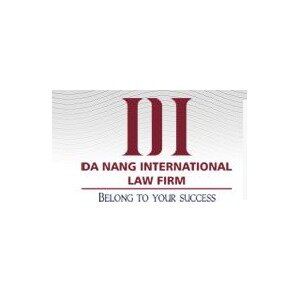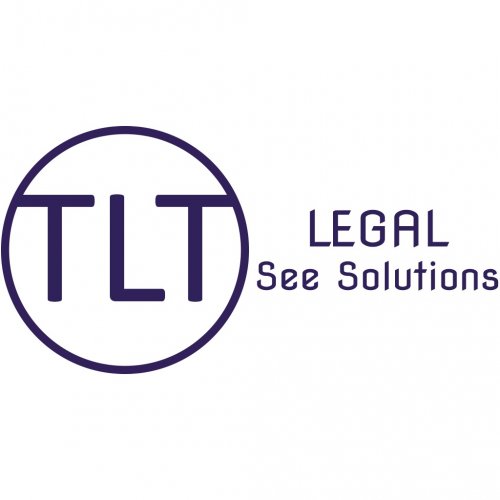Best Property Insurance Lawyers in Vietnam
Share your needs with us, get contacted by law firms.
Free. Takes 2 min.
Or refine your search by selecting a city:
List of the best lawyers in Vietnam
About Property Insurance Law in Vietnam
Property insurance in Vietnam is designed to protect individuals and businesses against losses or damages to their tangible assets, such as buildings and personal property, due to unforeseen events like fires, natural disasters, theft, and other risks. The framework for property insurance is largely governed by the Insurance Business Law, which outlines the operating criteria for insurance companies, the rights and obligations of policyholders, and the regulatory role of the Ministry of Finance. In recent years, the insurance market in Vietnam has expanded significantly, with both local and foreign insurers offering a range of products to meet the diverse needs of consumers and businesses.
Why You May Need a Lawyer
Individuals and businesses may require legal assistance in property insurance for several reasons. Common situations include:
- Policy Disputes: Disagreements between the policyholder and insurer over coverage, exclusions, and liability.
- Claim Denials: Instances where an insurance company refuses to pay a claim, leading to financial strain for the policyholder.
- Contract Interpretation: Understanding the complex language of insurance policies and the implications of specific clauses.
- Litigation: Legal representation in court if disputes escalate into lawsuits.
- Negotiations: Assisting in settlement negotiations to ensure fair compensation.
Local Laws Overview
Property insurance in Vietnam is primarily regulated by the Insurance Business Law and relevant decrees and circulars provided by the Ministry of Finance. Key aspects include:
- Licensing Requirements: Insurance companies must obtain a license from the Ministry of Finance to operate legally in Vietnam.
- Policy Regulations: Policies must clearly state terms, premium details, coverage limits, and exclusions.
- Consumer Protection: Provisions to protect policyholders from unfair practices and ensure timely claims processing.
- Dispute Resolution: Legal frameworks for resolving disputes between insurers and insured parties, including mediation and arbitration.
Frequently Asked Questions
What is covered under property insurance in Vietnam?
Property insurance typically covers damages or losses to buildings, contents within the buildings, and sometimes loss of income due to business interruption. Coverage specifics are determined by the terms of the individual policy.
Are natural disasters covered by property insurance in Vietnam?
Yes, many property insurance policies include coverage for natural disasters such as typhoons, floods, and earthquakes, although some may require additional endorsements or riders for full coverage.
How are premiums determined for property insurance?
Premiums are calculated based on several factors, including the property’s location, value, risk exposure, and the level of coverage selected by the policyholder.
What should I do if my property insurance claim is denied?
Review the reason for the denial carefully, check your policy terms, and if necessary, consult with a legal professional to explore dispute resolution options.
Can foreigners purchase property insurance in Vietnam?
Yes, both residents and non-residents including foreign businesses can purchase property insurance in Vietnam, provided they comply with local laws and regulations.
Is it compulsory to have property insurance in Vietnam?
While not universally compulsory, some types of properties, particularly those under mortgage agreements or certain commercial premises, may require insurance as part of the lending or leasing conditions.
How can I validate the legitimacy of an insurance provider in Vietnam?
Check if the insurance company is licensed by the Ministry of Finance and look for accreditation from reputable financial bodies or associations in Vietnam.
What are the key regulatory bodies for property insurance in Vietnam?
The Ministry of Finance and the Insurance Supervisory Authority are the primary regulatory bodies overseeing the insurance sector in Vietnam.
How long does it take to settle an insurance claim?
Settlement times can vary based on the nature of the claim and the insurer's processes, but the law requires timely processing, typically within 30 days of claim submission.
What legal remedies are available for unresolved insurance disputes?
Policyholders can seek resolution through mediation, arbitration, or pursuing legal action in court, depending on the dispute's nature and the policy's terms.
Additional Resources
For further assistance or information, the following resources can be helpful:
- Ministry of Finance: Regulatory updates and insurance licensing information.
- Vietnam Insurance Association: A platform for consumer education and advocacy.
- Insurance Supervisory Authority: For regulatory guidance and dispute resolution.
Next Steps
If you require legal assistance with property insurance in Vietnam, consider the following steps:
- Consult a Lawyer: Seek a reputable legal professional specializing in insurance law to understand your rights and options.
- Gather Documentation: Collect all relevant documents, including policy details, correspondence, and evidence of claims submitted.
- Evaluate Your Case: Work with your lawyer to assess the merits of your case and potential strategies for resolution.
- Negotiate or Litigate: Depending on the situation, you may choose to engage in negotiation, mediation, or pursue formal legal action.
Lawzana helps you find the best lawyers and law firms in Vietnam through a curated and pre-screened list of qualified legal professionals. Our platform offers rankings and detailed profiles of attorneys and law firms, allowing you to compare based on practice areas, including Property Insurance, experience, and client feedback.
Each profile includes a description of the firm's areas of practice, client reviews, team members and partners, year of establishment, spoken languages, office locations, contact information, social media presence, and any published articles or resources. Most firms on our platform speak English and are experienced in both local and international legal matters.
Get a quote from top-rated law firms in Vietnam — quickly, securely, and without unnecessary hassle.
Disclaimer:
The information provided on this page is for general informational purposes only and does not constitute legal advice. While we strive to ensure the accuracy and relevance of the content, legal information may change over time, and interpretations of the law can vary. You should always consult with a qualified legal professional for advice specific to your situation.
We disclaim all liability for actions taken or not taken based on the content of this page. If you believe any information is incorrect or outdated, please contact us, and we will review and update it where appropriate.
Browse property insurance law firms by city in Vietnam
Refine your search by selecting a city.













